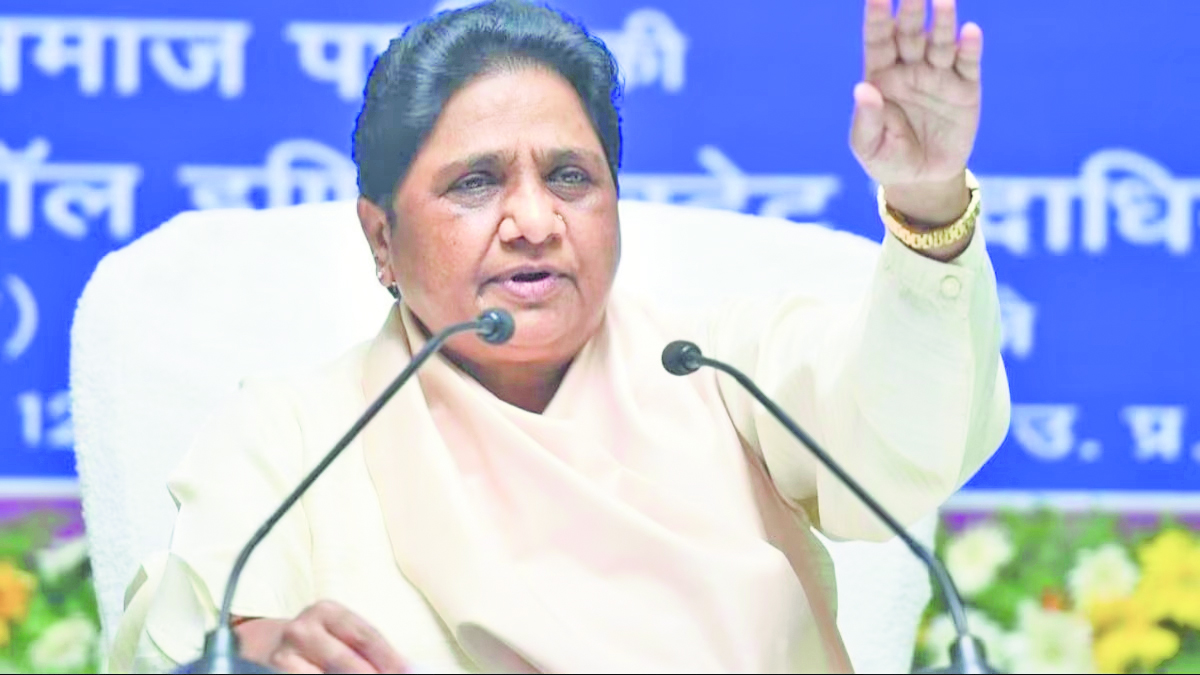Mayawati may want to consider some Dalit dissidents from other parties.
Bahujan Samaj Party (BSP) chief Mayawati has broken from her past practice of being the first to announce the names of party candidates for the Lok Sabha elections. The BSP has named just about half a dozen candidates so far, while a formal release of its first list of candidates in Uttar Pradesh, for the coming Lok Sabha elections is still awaited. At a time when repeating the performance of 2019—when it won 10 seats—looks like an uphill task, the signals are clear that the party is on a collision course with the SP-Congress alliance.
Signs of her anti-SP strategy started emerging, when Mayawati named Muslim candidates in Western UP seats that are dominated by the minority community. Five of the seven names made public by the party are Muslims, who are otherwise a core voter base of the SP. The delay in announcement of other BSP candidates is also linked to Mayawati’s discomfort over re-fielding most of the sitting MPs and she is putting in extra effort and time to find new, promising faces, sources say.
Bijnor MP Malook Nagar has been replaced by Vijender Singh, who is pitted against Rashtriya Lok Dal’s (RLD’s) Chandan Chauhan. The SP-Congress candidate is still to be named. The BSP has also replaced its Amroha MP, Danish Ali with Mujaheed Hussain, and replaced Saharanpur MP Fazlur Rehman with Majid Ali. In Muzaffarnagar, Dara Singh Prajapati has been named as the candidate by BSP, in Moradabad, Irfan Saifi; in Pilibhit, Anees Ahmed; and in Kannauj, Akil Ahmed Patta.
“The delay is also a sign of a dilemma in the mind of Mayawati. She is still making up her mind on what to do. This is in contrast to the 2012-14 era when the BSP used to organize huge rallies to show its strength just before the elections,” said an observer. The other strategy behind the delayed announcement of names is that Mayawati may want to consider some Dalit dissidents from other parties who may gravitate towards the BSP after their own parties refuse them tickets, said a BSP leader.
Mayawati is said to be hunting for potential candidates who got over two lakh votes in previous elections. On seats where no such candidates are available she is open to giving tickets to its zonal coordinators. The party’s vote share has hovered around 19-27% over the past two decades, clearly suggesting that any rise of vote share above 20% brings the party into seat contention. With almost every 2-3% rise in vote share about 20% vote share the party manages to pocket 10 seats.
However, political analysts warn that the party that touched the sky in the last two decades has now been reduced to an outfit limited to its core vote bank. This is a reflection of the diminishing connection between the party and the common citizen ever since it tasted power. Even the communication between party workers and BSP office bearers is reported to have broken down over the years, leaving the party workers disillusioned. Uttar Pradesh has 22% Dalit and 20% Muslim voters. The BSP considers Jatavs as its core vote bank. Jatavs form around 55% of the Dalit voters of UP. The BSP had tasted success from its social engineering formula of bringing Dalit, Muslim and Brahmin vote banks together.
However, while Jatavs continue to be firmly behind the BSP, a section of Mayawati’s Dalit supporters has deserted her over the past decade, partially, due to her preferential treatment of Jatavs. Dalits moving away from BSP have been courted by other parties like the BJP, which has promised to do more for the under-privileged. The non-Jatav communities that have gradually deserted the BSP include Dhobis, Dushads, Khatiqs, Pasis and Valmikis.
A leader like Chandrashekar Azad of the Azad Samaj Party have the potential to occupy Mayawati’s space but his outfit is still not deep rooted as the BSP. While Mayawati has become less approachable and does not travel outside of Lucknow, Azad is trying to be the new poster boy of Dalits and tries to mingle with people and lead protests against atrocities. Yet, his grooming as a mass leader appears to be incomplete and his area of influence largely remains confined to western Uttar Pradesh where Jats and Muslims play a significant role in deciding election outcomes.
In the last few elections, the BSP’s graph has been falling. In 2004, the BSP garnered 24.67% vote share and it won 19 Lok Sabha seats. In 2009, the party got 27.42% votes and 20 of its candidates were victorious. In 2014, the party got 19.77% votes, but none of its candidates won in the elections. In 2019, the party’s vote share improved to 22.43% and 10 of the candidates were elected to the Lok Sabha.

